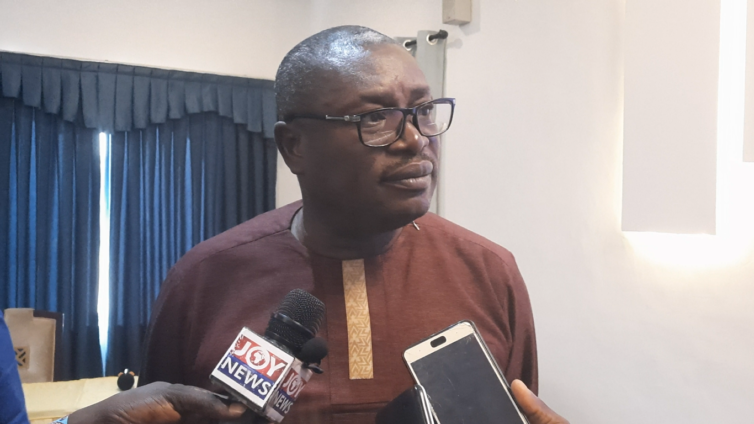Ghana Tourism Authority (GTA) has held a day’s orientation and training workshop in Sunyani on the implementation of the new tourism site regulations for stakeholders in the Bono, Bono East, and Ahafo Regions.
The training aimed at helping stakeholders to appreciate what the regulations, gazetted in December 2019 and came into force on March 4, 2020, expects from them to regulate and improve standards at the tourist sites.
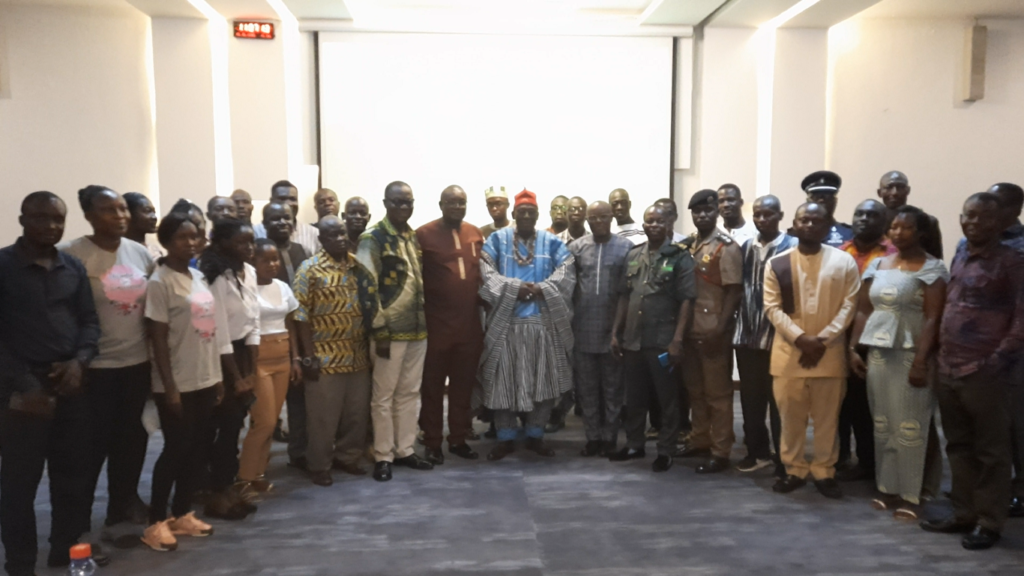
According to the Deputy Chief Executive officer in charge of operations, Ekow Sampson, the new regulations has classified tourist sites and attractions into three categories with specified requirements for each type.
Some of the requirements include access to roads, security of visitors, telecommunications, displaying of relevant information, qualified personnel, international best practices, and the collection of data, among others.
Natural resource sites such as national parks, beaches, lakes, waterfalls, rocks, and mountains are classified as category “N” tourist sites. Man-made tourist sites not originally designed to attract visitors, such as the castles and slave markets are category “H” sites, while man-made sites purposely built to attract visitors, such as the safari parks and heritage sites are category “P” tourist sites.
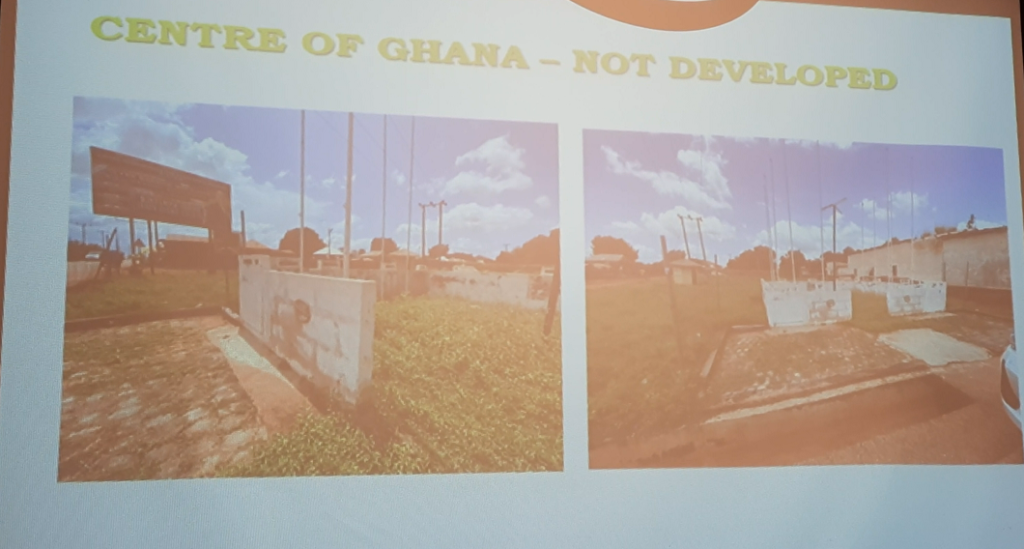
Mr. Sampson noted the regulations require every site meets a specified standard before licenses are issued.
He said implementation would lead to the improvement of standards, safeguard the safety of revelers, and improve the benefits derived from the tourism sector, hence their determination to enforce the regulations.
He, however, stated that there are penalties, such as summary convictions, for persons who fail to comply with requirements in the regulations.
Communications consultant for the Ghana Tourism Development Project, Zakaria Tanko Musah, said things must be done differently for the sector to challenge the traditional source of income.
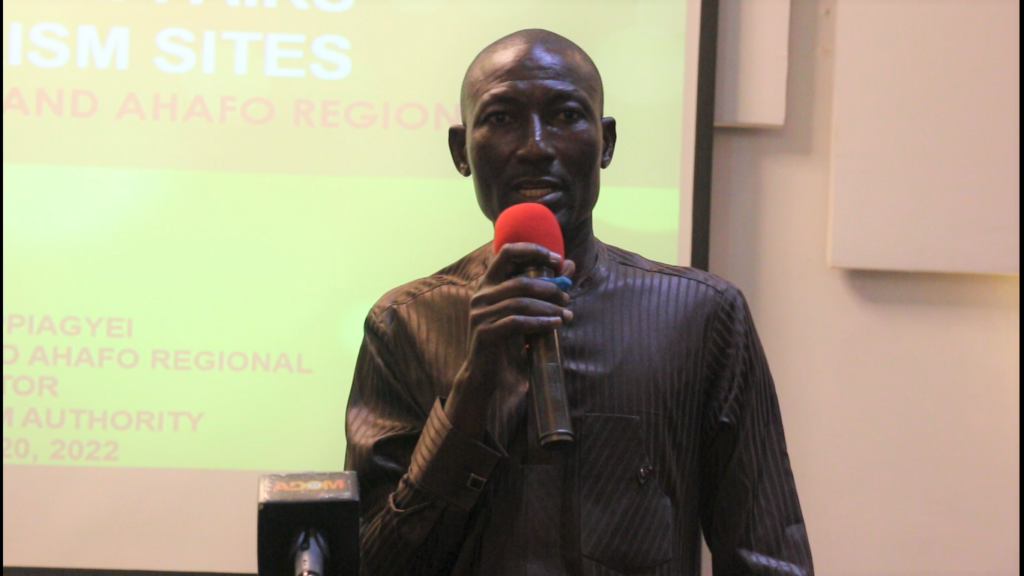
“We have a comparative advantage in the sub-region in tourism, arts, and culture. But the only way we can compete favorably is to make sure we are positioning ourselves in a way that meets international standards, and one of the ways is to have some regulations to regulate us”.
The Deputy CEO of GTA, Ekow Sampson, further emphasized that the provision of accurate data in the tourism sector can attract investors to help the industry's growth.
“For instance, knowing how many people visited the Kintampo waterfalls helps to know how you are performing and also for decision making. If investors want to come in and invest and the figures are low, then they would see whether to put their money there or not.”
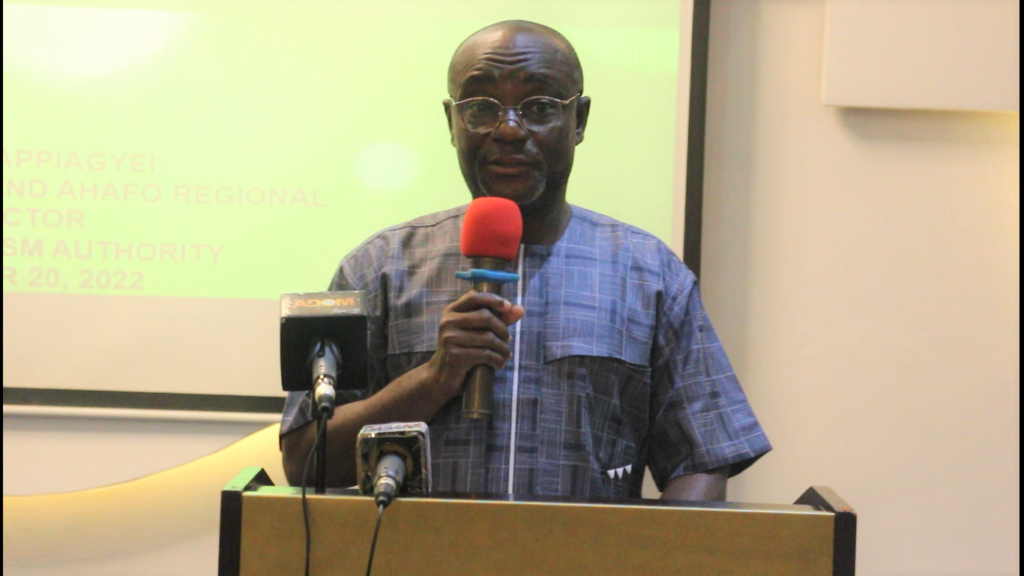
“Data would help us to know whether the country is doing well in terms of domestic and international tourist arrivals. It also helps us to measure our performance as far as the tourist sites are concerned”, he said.
The stakeholders, like the GTA, appealed for private sector investment in the tourist sites and develop new ones to boost the revenue generated.
Nana Fanyinama III, the paramount chief Wangara, appealed to the GTA and the Ministry of Tourism to add Kintampo to the emancipation activities in the country because Kintampo was an integral location for the slave trade.
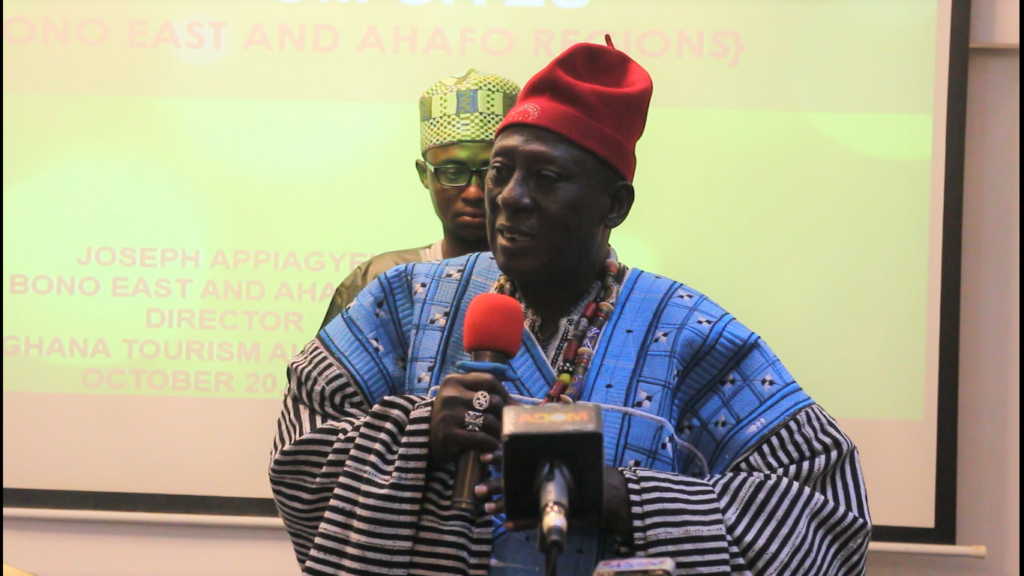
Meanwhile, the Bono, Bono East, and Ahafo Regional Director of GTA, Joseph Appiagyei, revealed that about 70 percent of tourist sites in the regions are not developed and said their doors are opened to collaborate with investors to change the narration.
He believes the training has equipped stakeholders to adjust to the new way of operating sites in the regions.
Latest Stories
-
Brazil great Marta to retire from international duty
5 mins -
Otto Addo was forced to accept Black Stars coaching job – Mohammed Polo
10 mins -
Karim Zito qualified to be Black Stars head coach – Mohammed Polo
17 mins -
Platinum Cup makes return on April 27
23 mins -
MoE is not changing uniforms or re-painting all public schools – Kwasi Kwarteng clarifies
56 mins -
16th Africa Aquatics Swimming Championships: Nubia and Harry to represent Ghana in Angola
1 hour -
Four defendants in NDA case by OSP open defence today
1 hour -
GFA commissions first set of floodlights at Ghanaman Soccer Centre of Excellence
1 hour -
Basic public school uniform change an initiative, not a policy – Kwasi Kwarteng
1 hour -
Bawumia appeals for peace in Gonjaland, donates GHȼ100K, bull
1 hour -
Drake: AI Tupac track gone from rapper’s Instagram after legal row
2 hours -
Repainting schools, changing uniforms a misplaced priority – Joy FM listeners on rebranding of basic public schools
2 hours -
UEFA U-16 Tournament: Black Starlets bounce back with 5-1 win over Serbia
2 hours -
There’s nothing strange about changing colours for basic public schools – Education Ministry PRO
2 hours -
Diana Asamoah causes arrest of personal assistant over GH₵4k MoMo theft
2 hours

